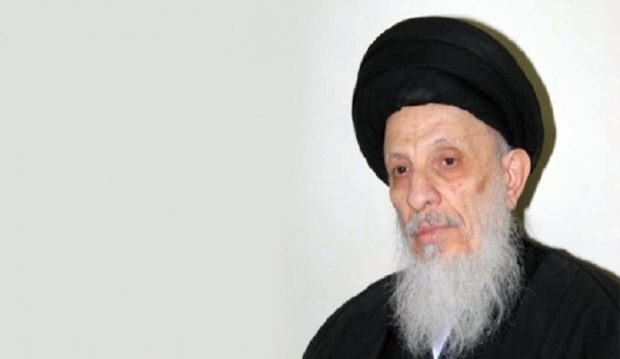
One of Iraq’s most influential Shiite clerics dies at 85
PTI, Sep 4, 2021, 11:59 AM IST

Baghdad: Grand Ayatollah Sayyed Mohammed Saeed al-Hakim, one of Iraq’s most senior and influential Muslim Shiite clerics, has died of a heart attack, members of his family said. He was 85.
A relative, Mohsen al-Hakim, told The Associated Press that al-Hakim died at the Al Hayat hospital in the southern holy city of Najaf on Friday where he was taken after suffering a sudden heart attack.
His office announced that he died of a sudden medical condition it did not specify.
Al-Hakim holds the highest theological title in Shiite Islam – Ayatollah al-Uzma, which means Grand or Supreme Ayatollah.
He was seen as the top contender to succeed Iraq’s top Shiite cleric, Ayatollah Ali al-Sistani, who is in his early nineties.
The Najaf-born cleric is a member of the well-known and highly respected Hakim family of Shiite scholars.
His maternal grandfather is Mohsen Al-Tabataba’i Al-Hakim, a scholar and one of the most prominent thinkers of Shiite Islam. His father is Muhammad Ali al-Hakim, one of the most respected clerics in Najaf.
His second cousin, Sayyed Ammar al-Hakim leads the al-Hikma, or National Wisdom Movement, one of the largest Shia political parties in Iraq.
Along with the Afghan-born Mohammed Ishaq al-Fayadh, Al-Hakim’s was seen as the most likely contenders to succeed al-Sistani, Iraq’s top Shiite spiritual leader.
Iraq’s president and prime minister and other politicians issued statements eulogizing Al-Hakim.
The US Embassy in Baghdad tweeted its condolences, describing him as “a symbol of peace, love, and harmony across the region.”
Mohammed Saeed al-Hakim was exposed from early on to an education that focused on jurisprudence and religious studies and had some of the most prominent clerics among his teachers. He soon turned to teaching and became one of the leading Shiite scholars in Najaf.
Like most Shiite religious leaders in the holy city, he was put under house arrest during the last days of Iraqi dictator Saddam Hussein’s rule, before the US invasion of Iraq.
He was among a group of three top Shiite leaders who were threatened with death by a rival Shiite cleric shortly after Saddam was toppled in 2003.
He was targeted in an attempted assassination in 2003 when his house in Najaf was bombed. Three of al-Hakim’s bodyguards were killed, and members of his family were injured. Al-Hakim himself came away from the blast with minimal injuries.
Relatives blamed terrorists for the bomb, which was hidden in a gas cylinder.
Al-Hakim is one of four Grand Ayatollahs who teach at the Hawza, the religious seminary of Najaf.
He has written many books and publications, some of which were translated into several languages.
Al-Hakim is survived by a wife and eight children.
A funeral is expected to be held on Saturday in Najaf, where he will be buried.
Udayavani is now on Telegram. Click here to join our channel and stay updated with the latest news.
Top News

Related Articles More

COP29: India rejects new USD 300 billion climate finance deal

Royal tour of India in offing for King Charles, Queen Camilla: Report

Indian-American leaders applaud PM Modi for inclusive growth in India

COP29: Civil society protests climate finance proposal, calls for ‘no deal’ over ‘bad deal’

Bomb disposal squad tackles ‘security incident’ at UK’s Gatwick Airport
MUST WATCH
Latest Additions

Wanted to kill Ajmal Kasab who caused so much of pain, recalls 26/11 terror attack victim

Two retired revenue officials among four arrested in land grabbing case in Jammu

Kerala govt to revise manual for junior doctors, house surgeons

State can interfere with religious practices if they impede development, equality rights: SC

Four cheers at MP’s Kuno park; cheetah Neerva gives birth to cub quartet
Thanks for visiting Udayavani
You seem to have an Ad Blocker on.
To continue reading, please turn it off or whitelist Udayavani.


















